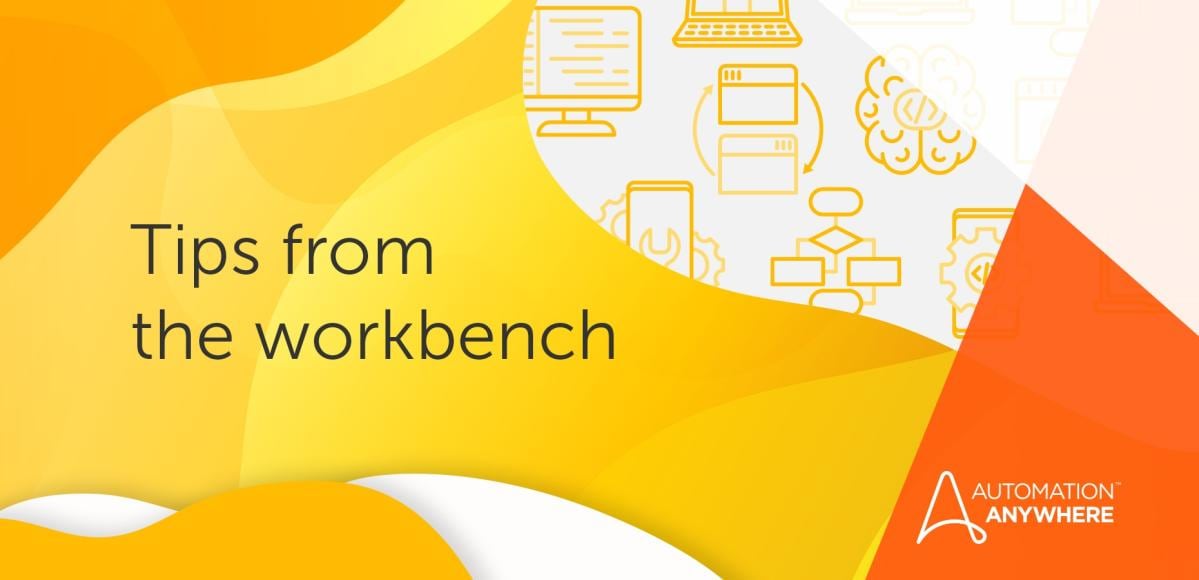- Login
- Search
- Contact Us
-
Have a question? Our team is here to help guide you on your automation journey.
-
Explore support plans designed to match your business requirements.
-
How can we help you?
-
- AI
AI Without the Hype From pilot to full deployment, our experts partner with you to ensure real, repeatable results. Get Started
- Automation Anywhere AI
-
- Solutions
Featured Agentic Solutions
Accounts Payable Invoice automation—No setup. No code. Just results. Accounts Payable
Customer Onboarding Scale KYC/AML workflows. Customer Onboarding
Customer Support Keep queues moving, even at peak load. Customer Support
Healthcare RCM Revenue cycle management that runs itself. Healthcare RCM
- Products
Platform Features
- Agentic process automation (APA)
- Robotic Process Automation (RPA)
- View all Products
-
- Resources
Get Community Edition: Start automating instantly with FREE access to full-featured automation with Cloud Community Edition.
Featured
 Named a 2025 Gartner® Magic Quadrant™ Leader for RPA.Recognized as a Leader for the Seventh Year in a Row Download report Download report
Named a 2025 Gartner® Magic Quadrant™ Leader for RPA.Recognized as a Leader for the Seventh Year in a Row Download report Download report- Become an Expert
- Developer Tools
- Get Support
- View all resources
-
- Partners
Find an Automation Anywhere Partner Explore our global network of trusted partners to support your Automation journey Find a Partner Find a Partner
- Find a Partner
- For Partners
-
Share this:
I’ve been building bots for a few years now, and I get a lot of questions from people who want to know more about the world of Robotic Process Automation (RPA), so here are my answers to the top five questions from aspiring developers.
#1 “What do you use RPA for?”
It's not just automating things. It’s understanding a process and even improving it and then automating it. You use RPA to streamline digital tasks by removing the bottlenecks. This improves the day-to-day activities of a company from the convenience of a cloud-native platform. That's why I like Automation 360 because security is ingrained within every aspect of the platform.
#2 “What degree of skill levels do I need to start coding for RPA?”
I always say RPA is for everyone. There are no degree or coding skills required for you to get started. You may identify yourself with one of two tiers of developers, one being the citizen developer. Today, digital assistants such as Automation Co-Pilot and low-code or no-code development platforms make it fast and easy for anyone to become a citizen developer and build an RPA solution for automating tasks—even somebody without a technology background such as a business user.
Some companies are having difficulty scaling RPA across their enterprise for a variety of reasons, including they can’t hire enough developers or the developers on staff have too much to do to handle all the automations. Business users represent an untapped resource to help out as citizen developers.
The second tier of developers is RPA developers. They need to research, analyze, and configure automated processes to improve the performance of business models, from creation to deployment. Developers learn in detail the systems involved in the processes. If you do have coding skills, RPA can definitely make use of them. But no matter which skill level you are at, RPA is for everyone. It's an amazing technology that is easy to use with drag-and-drop functionality. It’s going to have a positive impact by removing mundane tasks no matter where you are in the world.
If you want to boost your knowledge, academic institutions, learning companies, and RPA providers offer courses. For example, we have Automation Anywhere University with a variety of learning opportunities for all skill levels. You can choose from self-paced eLearning to live virtual instructor-led classes to technical webinars and certifications.
#3 “How do I improve my bot-building skills?”
Work your way from the flow view, which is a graphic view, to the list view, which is a more code-like approach in the Automation workspace. Don't stay in your comfort zone. Try to do things a different way since there are different ways that you can do the same thing. Find an RPA bot-building buddy to compare code and approaches regarding how a bot is built. For Automation Anywhere solutions, visit the developer portal and read the docs. Do your homework.
The docs are really important, and they have everything you need to know. Experiment with new packages. Take a look at the Automation Anywhere Bot Store for new ideas that are test-ready. Post on A-People. That’s a user community where you can post questions and get answers from other developers. Most of all, practice, practice, practice. And you’ll get better with time.
#4 “What are bots made of?”
People ask me, “Are the bots made just of Python scripts?” No. They’re made directly within the Automation 360 platform, which is an easy-to-use, drag-and-drop development workbench. You can use Python scripts and VBScript, JavaScript, and even C# DLLs directly within your bot. If you want to take things even further, use the Automation 360 SDK package to build packages in Java, which can even extend your bot's building capabilities and enable you to share those custom packages with other developers.
#5 “What is intelligent automation (IA)?”
IA is RPA on steroids. It’s injecting traditional RPA with artificial intelligence (AI) tech. AI-powered bots leverage technologies such as natural language processing (NLP), optical character recognition (OCR), and machine learning (ML) to continuously improve RPA.
Now every business process is a candidate for automation. Basically, IA allows you to go beyond task-based automation. Things such as dark data and unstructured data, including PDFs, that can't be easily captured can now be automated thanks to the intelligent automation—the steroids.
This goes back to the first question. We're not just automating things. We're improving them and then automating them. So what we're talking about with traditional RPA is automating human actions to reduce errors and improve efficiency. Now with intelligent automation, we're actually improving and automating human decision-making.
More tips to come. Stay tuned. Obrigada. Ciao, ciao!
Discover Our Low-Code/No-Code Platform.
About Lara Argento
Get to know the Agentic Process Automation System.

For Students & Developers
Start automating instantly with FREE access to full-featured automation with Cloud Community Edition.



